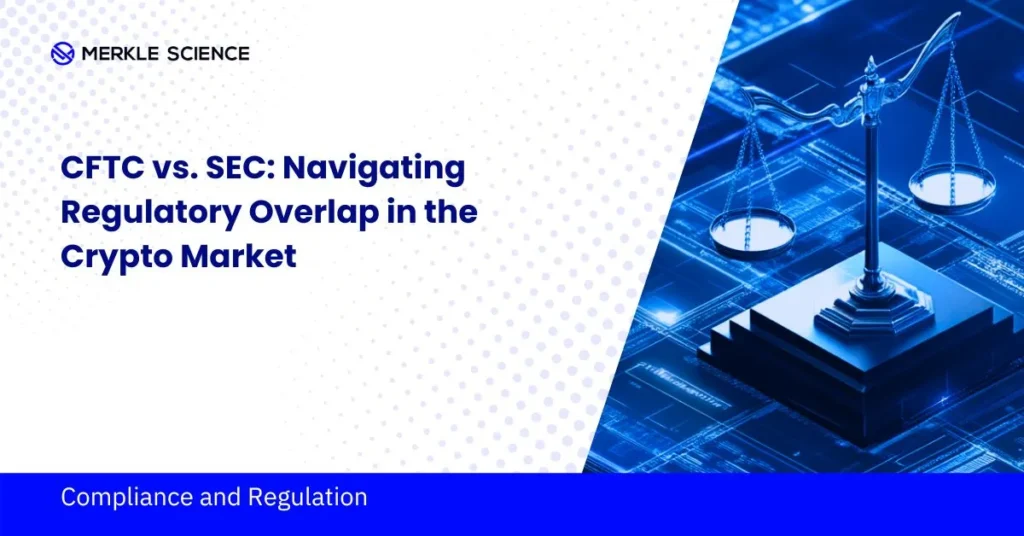In the constantly evolving world of cryptocurrency in the United States, a familiar regulatory rivalry has flared up once again. The Securities and Exchange Commission (SEC) and the Commodity Futures Trading Commission (CFTC) are back in the ring, each asserting that it is the rightful referee for policing the crypto market. This ongoing tussle not just affects the foundational fabric of U.S. cryptocurrency regulation, but also holds significant implications for investors and the broader financial landscape.
Background: The SEC vs. CFTC Debate
The debate over which agency should regulate cryptocurrencies is rooted in the fundamental characteristics of these digital assets. The core question revolves around whether cryptocurrencies should be classified as securities, which would place them under the SEC’s jurisdiction, or as commodities, which would place them under the oversight of the CFTC.
Historically, the SEC, established primarily to protect investors and maintain fair, orderly, and efficient markets, has approached cryptocurrencies with a perspective that many of these digital assets align closely with the definition of securities. This viewpoint stems from the Howey Test, a criterion originating from a 1946 Supreme Court case, which defines a security as any investment from which the investor expects profits derived from the efforts of others.
On the other side of the spectrum, the CFTC, which regulates commodity futures and options markets, views cryptocurrencies like Bitcoin and Ethereum as commodities. This classification is partly because these cryptocurrencies behave more like traditional commodities (like gold or oil) in various trading environments.
The Escalation of Regulatory Oversight
The urgency to establish clear regulatory guidance has intensified with the explosion of cryptocurrency adoption and the proliferation of related investment products. High-profile cases of fraud, market manipulation, and consumer losses have also propelled the need for robust regulatory frameworks.
In recent developments, various institutions and crypto platforms have faced legal actions from the SEC, which argues that numerous tokens and cryptocurrencies fall under its regulatory domain as securities. Meanwhile, the CFTC has also ramped up its actions, evident from its recent charges against high-profile crypto figures and platforms, reinforcing its stance that fraud involving commodities, including cryptocurrencies, falls within its enforcement powers.
Implications for Investors and the Market
The ongoing uncertainty about which regulatory body has jurisdiction over cryptocurrencies has profound implications for the market. For investors, this ambiguity can translate to uncertainty in terms of the protections available to them. A security classification would mean stringent disclosure requirements and other investor protections typical in the securities markets. A commodity classification, while still regulated, generally offers less direct oversight of the underlying market structure.
This regulatory uncertainty can also affect the innovation and liquidity of the crypto market. Potential new entrants and innovators might be deterred by the ambiguous regulatory environment, possibly slowing the pace of technological advancement and market maturation in the U.S., shifting activity to more regulatory-friendly environments globally.
The Path Forward
As the debate between the SEC and the CFTC continues, the call for a clear, harmonized regulatory framework grows louder within the crypto community and among traditional financial institutions venturing into crypto. Congressional action may ultimately be necessary to define the precise roles each regulatory body should play. This could involve explicit statutory mandates or the creation of a new regulatory framework designed specifically for cryptocurrencies and other digital assets.
Conclusion
As the SEC and CFTC continue their regulatory tug-of-war, the stakes are high for the future of U.S. crypto regulation. The outcome of this struggle will not only define the trajectory of the crypto market but will also set precedents that could impact global attitudes toward cryptocurrency regulation. For now, industry participants and investors alike are watching closely, knowing that their very coins—and the future of digital assets—hang in the balance.






